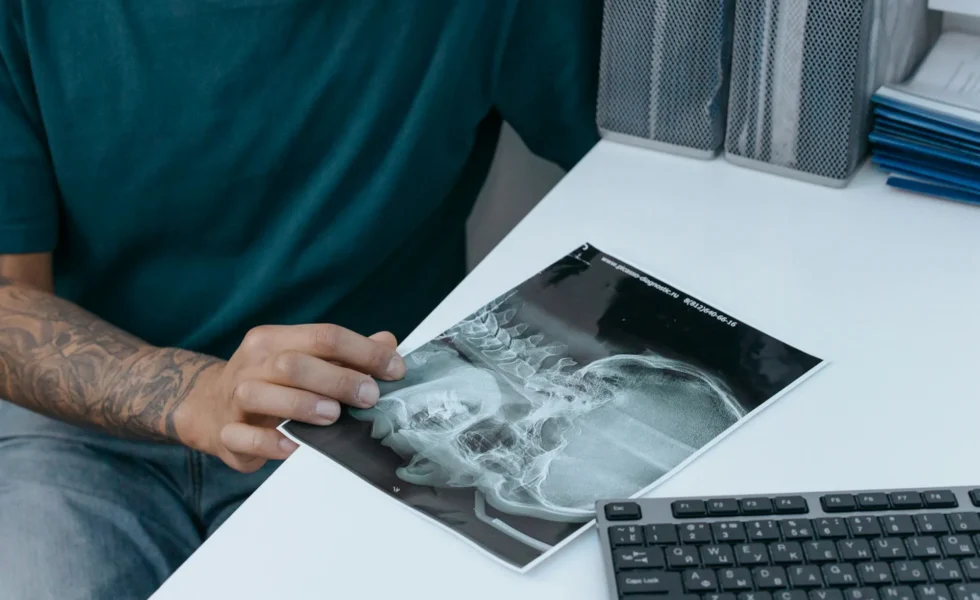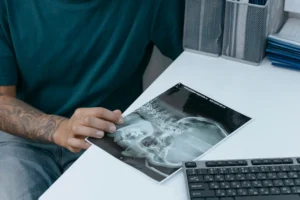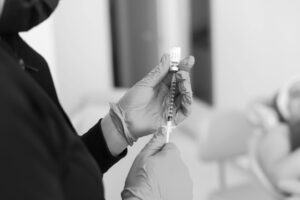Quick Answer
Your jaw may be popping on one side due to issues with the temporomandibular joint (TMJ), such as misalignment, muscle strain, or cartilage damage. These problems can cause uneven jaw movement and clicking sounds when you open or close your mouth.
Key Takeaways
- Jaw popping is often a sign of TMJ dysfunction, linked to discomfort, clicking sounds, and difficulty chewing.
- Common causes include joint misalignment, cartilage damage, and teeth grinding.
- Treatments range from physical therapy and splints to advanced options like Botox and surgery.
- Early intervention can prevent symptoms from worsening—consult a professional if pain persists.
For a more in-depth answer to this question, please read on.
Do you hear a clicking sound when you open your mouth? This could be a sign of a problem with your jaw joint, known as the temporomandibular joint (TMJ).
Jaw popping, often accompanied by discomfort and difficulty chewing, might indicate a temporomandibular disorder (TMD).
Causes range from jaw misalignment to cartilage damage and muscle strain. Conditions like teeth grinding and arthritis can exacerbate the issue.
Ignoring these signs can lead to worsening symptoms, so early intervention is crucial.
What Causes Jaw Popping and TMJ Symptoms?
Jaw popping often arises from disruptions in the temporomandibular joint (TMJ), which connects your jaw to your skull. Common causes include:
Dislocated Cartilage
Description: The cartilage disc slips out of place, leading to uneven jaw motion.
Muscle Overuse
Description: Excessive use strains the muscles, causing fatigue and stiffness.
Joint Misalignment
Description:Improper alignment of the TMJ results in abnormal motion.
Stress or Anxiety:
Description: High stress levels often lead to jaw clenching or teeth grinding, which strain the TMJ over time.
Injury or Trauma
Description: A blow to the jaw or head can misalign the joint or damage the surrounding cartilage.
A study published in the Journal of Oral Rehabilitation found a strong correlation between stress-related oral habits, such as teeth grinding (bruxism), and TMJ dysfunction, particularly in patients experiencing facial pain
Symptoms of Jaw Clicking
TMJ disorders are often marked by:
- Clicking or popping sounds when you move your jaw.
- Jaw pain or discomfort during movement.
- Difficulty chewing or locking of the jaw.
- Facial pain or frequent headaches.
- Ear-related issues. Some people experience tinnitus (ringing in the ears) or a feeling of fullness in the ears due to TMJ dysfunction.
Behaviours That Increase the Risk of Jaw Popping
Certain behaviours can heighten the likelihood of jaw popping:
- Chewing gum excessively: Overworks your jaw muscles and TMJ, causing fatigue.
- Teeth clenching or grinding: Creates excessive pressure on the jaw, leading to tension or joint misalignment.
- Poor posture: Resting your chin on your hand or slouching can misalign the jaw.
- Using dental braces: While braces realign teeth, they may temporarily stress the TMJ.
Avoiding these habits can reduce the strain on your TMJ and improve jaw health.
When to See a Doctor & Why It Matters
Occasional jaw popping without pain is common and usually harmless. However, if you experience any of the following symptoms, it’s important to seek professional advice:
- Persistent or worsening jaw pain.
- Difficulty opening or closing your mouth.
- Jaw locking or restricted movement.
- Facial swelling or suspected injury.
These symptoms may indicate advanced joint damage, which, if left untreated, can lead to chronic pain, arthritis, or permanent dysfunction. Seeking early treatment can prevent complications and improve long-term jaw health.
What Happens if TMJ Disorders Go Untreated?
Left untreated, TMJ disorders can worsen over time, leading to:
- Chronic pain in the jaw, face, or neck.
- Damage to the joint cartilage or surrounding structures.
- Difficulty chewing or speaking due to jaw stiffness.
- Development of related conditions, such as arthritis or jaw locking.
A Real-Life Example
Consider Sarah, a 32-year-old who ignored her mild jaw popping for years. Over time, it progressed to severe pain and frequent jaw locking, ultimately requiring surgical intervention. Early treatment could have prevented her condition from worsening.
Taking proactive steps can protect your long-term jaw health.
At-Home Remedies for Jaw Popping Relief
For mild cases of TMJ dysfunction, simple at-home remedies can help manage symptoms:
- Jaw relaxation exercises: Gently opening and closing your mouth while keeping your tongue on the roof of your mouth can improve jaw alignment.
- Massage therapy: Applying light pressure to the jaw muscles can reduce tension.
- Avoiding hard foods: Chewing tough foods can strain the jaw—stick to soft foods during flare-ups.
- Correcting posture: Sitting upright and avoiding resting your chin on your hand can reduce strain on the TMJ.
These techniques can complement medical treatments and help prevent symptoms from worsening.
TMJ Treatment Options: What Works Best?
If you’re experiencing jaw popping due to TMJ disorders, several treatment options can help. The right choice depends on the severity of your symptoms:
Mild TMJ Symptoms: Home care and non-invasive treatments often provide relief.
- Jaw exercises & stretching: Gentle jaw exercises improve mobility and reduce stiffness.
- Hot & cold therapy: Heat relaxes tense muscles, while cold therapy reduces inflammation.
- Stress management: Techniques like meditation or deep breathing can help reduce jaw tension caused by stress.
Moderate TMJ Symptoms: May require additional intervention.
- Mouthguards or splints: These help prevent teeth grinding and reduce strain on the jaw joint.
- Physical therapy: Strengthening and mobilization exercises guided by a specialist can improve jaw function.
Severe TMJ Symptoms: When conservative treatments aren’t enough, medical interventions may be necessary.
- Botox injections: A highly effective, minimally invasive option that relaxes overworked jaw muscles, reducing tension and jaw popping. Learn more about Botox for TMJ Jaw Pain.
- Joint injections or surgery: In rare cases, procedures may be needed to repair or realign the TMJ.
A professional consultation will help determine the best treatment for your condition.
Conclusion
Understanding the causes of jaw popping and exploring treatment options can help you take control of your jaw health.
From physical therapy and oral appliances to advanced options like Botox injections or surgery for severe cases, there are solutions available.
Seek professional advice from myself Dr Majid Shah, to find the treatment that’s right for you and improve your quality of life.
Frequently Asked Questions
Is Jaw Popping Normal, and When Should I Be Concerned?
Occasional jaw popping without pain is common and often harmless. However, consult a professional if you experience:
- Persistent pain or discomfort
- Difficulty opening or closing your mouth
- Limited jaw movement
Can Botox Help with TMJ Disorders?
Yes! Botox injections can help relax overworked jaw muscles, relieving tension, teeth grinding, and jaw popping. It’s an effective, minimally invasive option for patients who haven’t responded to traditional treatments.
How Can I Permanently Fix Jaw Popping?
Non-surgical treatments like physical therapy, oral appliances, and Botox injections often provide long-term relief. Severe cases may require surgical intervention to correct underlying structural issues.
Schedule a Consultation
Looking to find relief from TMJ? Request a consultation via our contact form with Dr. Majid Shah Aesthetics or call 0121 514 2385 for Birmingham’s premier skin clinic for help.
With years of experience and an excellent reputation, I will work with you to achieve your desired result.





